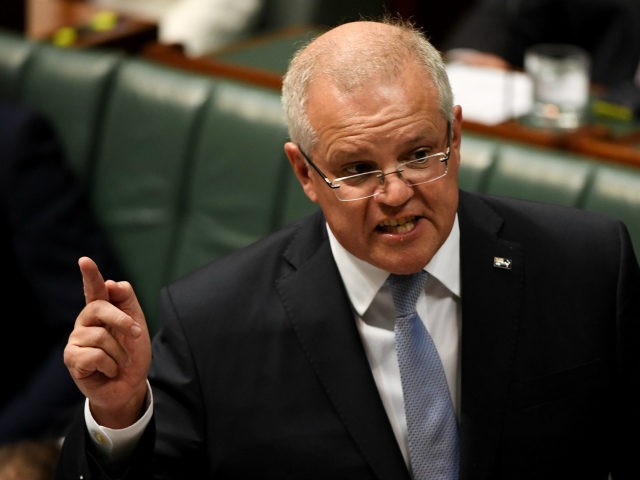Australia’s prime minister is seeking federal powers to veto state governments’ deals with foreign entities. The move is widely viewed as targeting China’s influence on the country.
Prime Minister Scott Morrison proposed a law on Thursday that would allow Australia’s foreign minister to “examine all existing and future deals with foreign governments and to abolish or cancel them. All deals will be included in a public register,” according to the Straits Times. “The law excludes companies but covers local councils which enter sister-city arrangements with foreign entities” along with “states, territories, and universities.”
Australia currently has no legislative requirement that states and territories consult with federal officials prior to arranging deals with foreign governments. Morrison said in a statement on Thursday that the Foreign Relations bill would help safeguard Australia’s national interest.
“Australians rightly expect the federal government they elect to set foreign policy,” Morrison said. “These changes and new laws will ensure that every arrangement done by any Australian government at any level now lines up with how we are working to protect and promote Australia’s national interest.”
Morrison’s conservative government will introduce the bill to Parliament next week. Australia’s leftist opposition Labor Party has indicated support for the law, meaning it will likely pass.
Although officials have not specifically mentioned China in proposing the new law, observers say the main motivation behind the bill is the Australian government’s concern that states and universities have been entering into agreements with Chinese entities at great risk to national security. In 2019, the Australian state of Victoria signed a deal with Beijing to join its infrastructure-building Belt and Road Initiative (BRI), which the Chinese Communist Party uses to expand its sphere of influence. The state’s decision reportedly alarmed the federal government, which may seek to use the new law, should it pass later this year, to override the plan.
In an interview with Australia’s ABC Radio on Thursday, Australian Deputy Prime Minister Michael McCormack alluded to future action against Victoria’s BRI deal with China.
“There’s been discussions between the prime minister and Victoria” regarding the law’s possible impact on the BRI deal, McCormack said. “We want to make sure that if there are arrangements being put in place that they are done in the national interest,” he added.

COMMENTS
Please let us know if you're having issues with commenting.